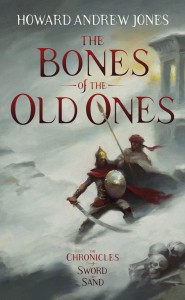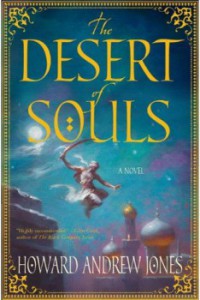Novel Lessons 4.5: Between the Novels, Part 2
 One of the reasons I wrote last week of learning from other genres is because of one of the problems plaguing me in the as-yet uncompleted The Maiden’s Eye. I’ll get to that in a moment, but first, some background.
One of the reasons I wrote last week of learning from other genres is because of one of the problems plaguing me in the as-yet uncompleted The Maiden’s Eye. I’ll get to that in a moment, but first, some background.
The unfinished third novel of Dabir and Asim had several problems leading to its abandonment, although the most important of those was the cancellation of the series. By the second or third month after the release of The Bones of the Old Ones, it was clear that no amount of good press was getting the book to move. It just wasn’t selling. My editor told me if I wanted to go ahead and finish the third book, that he’d publish it, but the writing seemed to be on the wall, and we both agreed to step away.
I set to work deciding what I’d work on next, coming up with several ideas I’d back burnered, outlining them in some detail before I allowed myself to mourn the end of the series I loved so well. I’ve since vowed that I will at least one day finish the third novel, but I have to admit that it was a little easier to walk away because it had some issues:
 Even though I’d vowed to myself and my long-suffering wife that I’d know my villains really well before I started writing the next book, I didn’t. I knew the henchmen, and I knew many of the challenges before our heroes, but I didn’t know the villain’s motivation. Doh! I should have learned that lesson the LAST time, but since I hadn’t, the universe taught it to me again, and as I got closer and closer to the two-thirds mark the book began to spiral out of control.
Even though I’d vowed to myself and my long-suffering wife that I’d know my villains really well before I started writing the next book, I didn’t. I knew the henchmen, and I knew many of the challenges before our heroes, but I didn’t know the villain’s motivation. Doh! I should have learned that lesson the LAST time, but since I hadn’t, the universe taught it to me again, and as I got closer and closer to the two-thirds mark the book began to spiral out of control.- Complexity — my goodness, is this one complex. It all takes place during a single week in Baghdad, and every night the caliph is having a story contest with his dinner guests, among whom are Dabir and Asim and Sindbad and some other notables. It was growing darned challenging to keep the stories coming and not slow down the pacing. I think I may finally have figured that out, though.
- Most germanely, in addition to point 2, poor Dabir has to solve two unrelated mysteries at the same time all the rest of this is going on. He is, for all intents and purposes, functioning not like a Sherlockian, but more like a hard-boiled detective, albeit one with Sherlockian skills. At the time I’d begun writing I’d read almost no hardboiled detective stories, and very few real mystery stories at all. And that, fellow readers, was incredibly stupid.
 Point three closely relates to what I wrote last week about reading beyond the genre. If I was going to write some honest-to-goodness mystery stories then wouldn’t it have behooved me to read a lot more of them? Yes, yes it would have. And since 2013 I’ve read and loved scads and scads of them. I think, when I find the time, I can now write one properly. But to think I could pull one off in a satisfying way without really knowing the genre was sheer foolishness. I’d say it was arrogance, except I don’t remember thinking at any point “pfft, that looks simple, I can do that.” I just thought I’d seen enough mysteries, and that mystery played enough of a role in various stories I’d read, that I was familiar enough with the genre to make it work. I have since learned immeasurably by reading great mysteries over the last four to five years, and when I finally return to the book it will be a lot simpler to get the tone right. If you’re going to write a thing, I believe it generally behooves you to read what the best have done before you.
Point three closely relates to what I wrote last week about reading beyond the genre. If I was going to write some honest-to-goodness mystery stories then wouldn’t it have behooved me to read a lot more of them? Yes, yes it would have. And since 2013 I’ve read and loved scads and scads of them. I think, when I find the time, I can now write one properly. But to think I could pull one off in a satisfying way without really knowing the genre was sheer foolishness. I’d say it was arrogance, except I don’t remember thinking at any point “pfft, that looks simple, I can do that.” I just thought I’d seen enough mysteries, and that mystery played enough of a role in various stories I’d read, that I was familiar enough with the genre to make it work. I have since learned immeasurably by reading great mysteries over the last four to five years, and when I finally return to the book it will be a lot simpler to get the tone right. If you’re going to write a thing, I believe it generally behooves you to read what the best have done before you.
Going forward, my wife and son have suggested some great villains and master plans that I’m totally going to use. I’m still being pushed to interlink the two mysteries, and I still resist, and I’m not sure how I can retain the pacing and still have Arabian Nights like stories intercalated through it, but if I can pull it off… it will be a very, very fine thing.
Next week, though, I’ll look at my third Pathfinder novel, and what I learned writing that one.
0 Comments